We have failed Palestinians & Kashmiris, PM tells OIC foreign ministers
Imran suggests mediation in Ukraine crisis with China; says ‘radical’ version of Islam did not exist
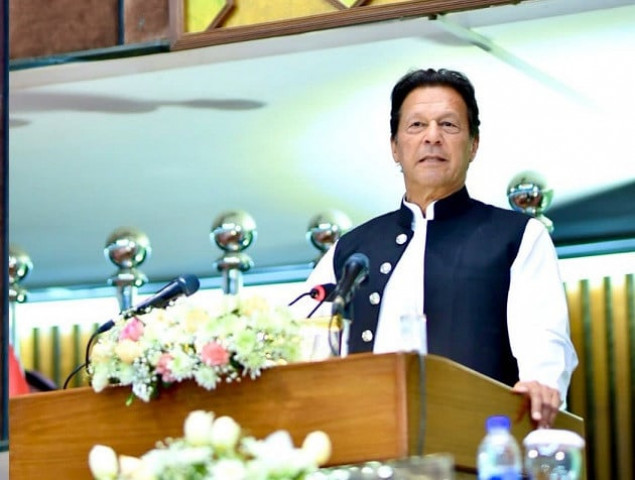
Prime Minister Imran Khan on Tuesday told a mega gathering of foreign ministers from Muslim nations that the 57-member Organisation of Islamic Cooperation (OIC) had failed the people of Palestine and Kashmir.
Pakistan is hosting the 48th session of the Council of Foreign Ministers (CFM) of Organisation of Islamic Cooperation (OIC), with more than 600 delegates in attendance, including Chinese Foreign Minister Wang Yi as a special guest.
This year’s theme is ‘Partnering for unity, justice and development’.
The conference has an ambitious agenda, covering issues like Palestine, Kashmir and other challenges facing the Islamic countries.
In a speech delivered at the opening session of the two-day conference, Premier Imran regretted that the OIC had failed in making an impact on the burning issues of Palestine and Kashmir despite representing 1.5 billion people.
“We have failed both Palestinians and Kashmiris. I am sad that we have not been able to make an impact despite being the massive voice of 1.5 billion people,” the prime minister said in the presence of foreign ministers, among them Saudi Arabia’s Prince Faisal bin Farhan Al-Saud.
OIC Secretary-General Hissein Brahim Taha, Islamic Development Bank President Dr Muhammad Suleiman Al-Jasser, Foreign Minister of Saudi Arabia Prince Faisal bin Farhan, Chinese Foreign Minister Wangi Yi and other foreign ministers joined the session.
“I ask the OIC that unless we have a united front, these injustices will keep happening,” he said while referring to the unresolved Palestine and Kashmir disputes.
He said Muslims in both the disputed regions have been suffering for a long time and are being denied their right to self-determination by the occupying countries – Israel and India – in clear breach of international laws and the UN resolutions.
The prime minister was of the view that he was not seeking the OIC countries to change their policies but at least put a united stance against the injustices being committed in Palestine and Indian Illegal Occupied Jammu and Kashmir.
The OIC, which was originally formed to support the Palestinian cause, has often been criticised for not doing enough against the onslaught of Israel. In recent years, Arab countries have started establishing diplomatic ties with the Jewish state.
The same Arab countries are reluctant to openly condemn the human rights abuses in Indian Illegal Occupied Jammu and Kashmir. The reluctance stems from these countries’ economic interests with India.
However, on Tuesday, the Saudi foreign minister, the OIC Secretary General and other speakers did stress the need for a resolution of the Kashmir dispute in line with the UN resolutions.
The prime minister said the world was heading in the “wrong direction” and such a situation warranted a united stance by the Islamic countries.
He said the world was heading towards another Cold War, with countries having been sucked into bloc politics.
“Unless we, as Islamic platform get united, we will stand nowhere,” he said.
The prime minister also brought up the issue of Ukraine in his speech and suggested that China and Islamic countries mediate in the Russia-Ukraine conflict and try to bring about a ceasefire.
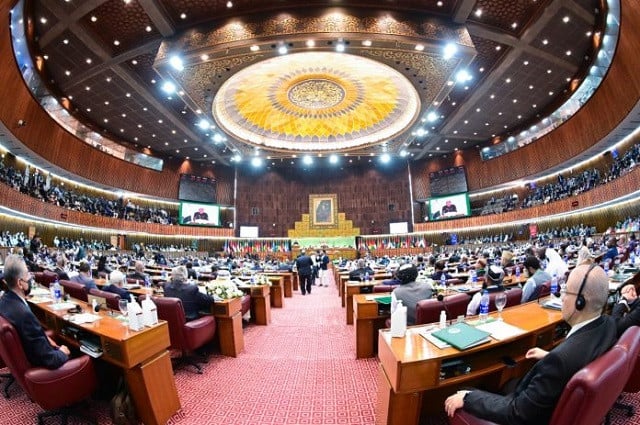
“May I suggest that OIC during its discussion with foreign ministers, we should think about how ... how we can mediate, how we can bring about the ceasefire,” the prime minister told the gathering.
“I want to discuss how, maybe OIC along with China, we can all step in and try to stop this conflict which is going to have, if it keeps going the way it is, it would have great consequences for the rest of the world.”
The reason behind the prime minister underscoring the need for a political solution to the Ukraine crisis is that he feared the conflict had already taken its toll on developing countries with the rise of international oil and commodity prices such as wheat.
Speaking about Afghanistan, the prime minister said it was extremely important to stabilise Afghanistan.
He said due to sanctions and non-recognition, Afghanistan may fall into another humanitarian crisis and the only way to stop terrorism emanating from the Afghan soil was to support a stable government in the war-torn government.
Denying the existence of a “radical” version of Islam, the prime minister said there was only one kind of Islam that was preached by Prophet Mohammad (PBUH).
The premier said the narrative of ‘Islamic terrorism’ went on unchecked after the 9/11 attacks. “We, the Muslim countries, did not do anything to stop this narrative,” he said, adding that the heads of Muslim states should have taken a stand on the issue but “instead [a] lot of them kept saying things like we are moderate”.
Read OIC session dragged into no-trust mudslinging
That meant that they were acknowledging that there was a radical version of Islam. “There is only one Islam that is of Prophet Mohammad (PBUH),” he said, adding that there were fanatics in every human community but only Islam was singled out by the use of such terms.
He said Islam was vilified, yet there was no “coherent response” by the Muslim world.
The prime minister said after the resolution on Islamophobia, he hoped that a narrative would be put forward that why blasphemy hurts Muslims so much.
According to the premier, the Objectives Resolutions by the “founding fathers” in 1951 envisaged Pakistan as an Islamic welfare state based on the model of Madina.
He said he entered politics for the very same goal.
“In the history of mankind, there was never a more just and humane state than the state of Madina,” he said, adding that unfortunately, Muslims didn’t know about it.
The prime minister said Prophet Muhammad (PBUH) came to “unite the mankind, not divide them”.
The charter of Madina was signed with Jews, Christians, and Pagans, he said, adding that everyone became part of the community.
“It was a revolution of ideas; the holy prophet (PBUH) created a new system,” Imran said.
Speaking about rule of law, he said poor countries have one thing in common: they cannot catch white-collar criminals. “The developing world is poor because they cannot put powerful criminals in jail.”
Citing a UN report, he said $1.6 trillion are siphoned off from poor countries by powerful criminals.
According to the prime minister, one of the ideas behind the OIC moot was to protect Islamic values.
“I believe Islamic values never have been under so much threat as they are right now.”
“After becoming the premier, I asked police chiefs about the crime chart and I was told sex crime, including child abuse, was the fastest growing crime in Pakistan. Upon investigation, it was discovered that mobile phones – the sort of pornographic material available to children on phones – were causing havoc in society.”
It is very important to combat this, he said, adding that there was a rise in divorces. The increase in vulgarity damaged the family system, Imran said, adding that the culture that was coming through social media needs plans to combat it.
Chinese Foreign Minister Wang Yi, who attended the OIC conference as a special guest, said Beijing was ready to build partnerships with the Islamic world for the promotion of multilateralism and democracy in international relations as well as for unity and cooperation.
“China is ready to build four partnerships with Islamic countries. We should be partners of unity and cooperation… We need to be partners in development and revitalisation… We need to be safe and stable partners,” he said.
He told the gathering that China would continue to stand firmly on the side of the Palestinian people and support the early convening of a more authoritative and representative international peace conference on the basis of a two-state solution to promote a comprehensive and just settlement of the issue.
He said China would respect the choice made by the Afghan people, support Afghanistan in achieving an inclusive government and steady governance.
“On the Kashmir issue, we have once again heard the call of many Islamic friends. China shares the same aspiration,” he said.
The OIC Secretary General called for concerted efforts to deal with the contemporary challenges facing the Islamic countries.
Foreign ministers of Saudi Arabia and Turkey also addressed the inaugural session while a special message of the UN Secretary General was also played during the conference.
The session will conclude on Wednesday with the OIC member countries to adopt over 100 resolutions dealing with issues concerning the Islamic world.
The OIC delegates are scheduled to attend the Pakistan Day Parade.
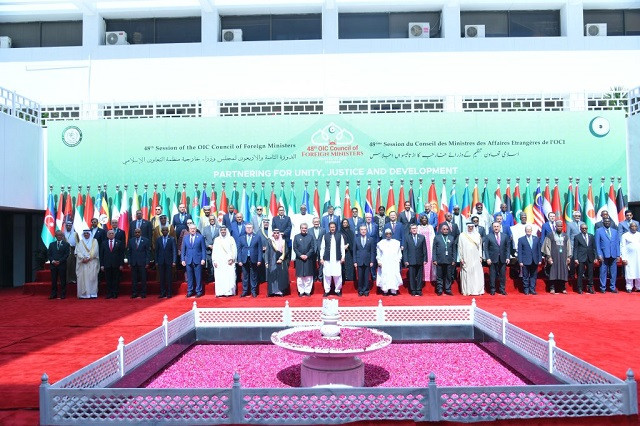


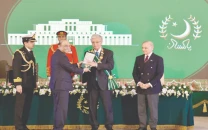

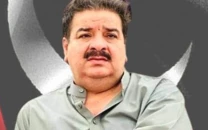
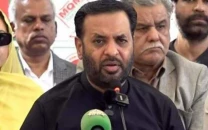
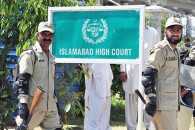












COMMENTS
Comments are moderated and generally will be posted if they are on-topic and not abusive.
For more information, please see our Comments FAQ